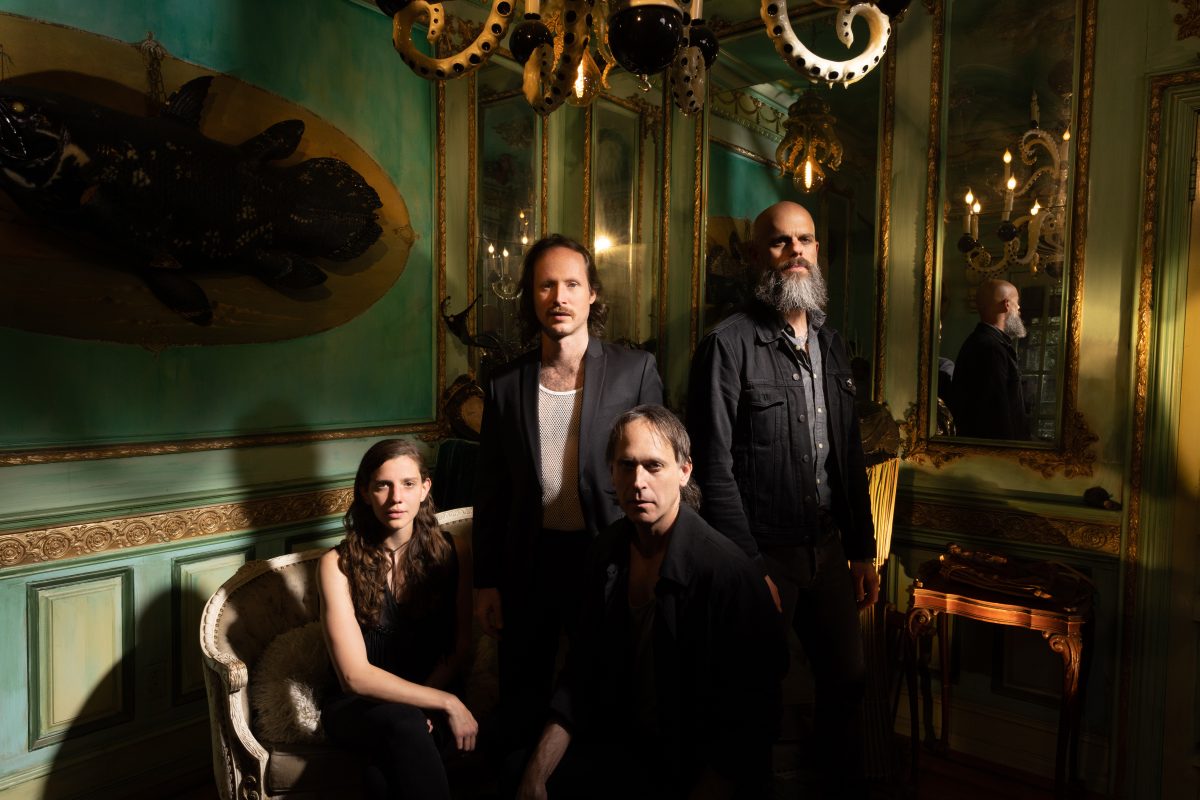A metal band in that they definitely sound “heavy” across a large swath of their six album, full-length catalog (big riffs, distorted guitars, emphatic and aggressive vocals), it’s helpful to think of Baroness in terms of pre- and post-bus accident. After the tragic descent of a bus near Bath, England, in August 2012, things changed as the band’s approach and personnel evolved. Lead vocalist/guitarist and main visionary John Baizley broke his arm and leg in the bang-up, and the other injured members eventually left. Some time around 2017, the current lineup was nailed down as captured on 2019’s Gold and Grey and last year’s Stone.
Taking genre-hopping as far as a metal-leaning band can—that is, the gist never gets as obscurely frenetic as what John Zorn’s Naked City accomplished in the ’90s with country-to-surf-to-death metal in mere seconds—the results feel honest and firmly connected to Baroness’ overall aesthetics and pristinely adept craft. For example, a song like “Cocainium” from 2012’s Yellow and Green mists with the quiet entry of a meditation soundtrack only to turn on you at multiple points: Unassuming soft-stepping trippy ’60s-stained disco sonics follow with a full-on, fuzzed-out premium distortion drive—the kind that makes heads bang. On their most recent record, “Beneath the Rose” carries the faintest echoes of Megadeth’s cynical “Peace Sells” vocal, but Baizley’s spoken delivery shifts to layered atonal harmonies, eventually giving way to surprising acoustic guitar overlays, only to swivel again, unleashing the melodic drama of throaty shouting and gnashing rhythms.
Despite hurling the power of 1,000-pound steel riffage Baroness proves capable of, they also pour out a wealth of softer dynamics. Stone is bookended with downhome finger-picking and sweet, calm harmonies on “Embers” and “Bloom,” where Baizley and lead guitarist Gina Gleason meld together in a folksy way that would not sound out of place at The Front Porch.
You could call the band prog in that they play really well and don’t shy away from occasional noodling. On the other hand, they don’t sound like they’re trying to scare you, or worse, bore you with their fluency. Having said that, when Baroness is in attack mode, there are familiar touchstones that make for inevitable comparisons; saying they’re like Queen or Metallica or Tool when relying on strong guitar takes, or stepping into Pink Floyd territory when they get introspective, is probably oversimplification. Bluntly put: They don’t have one sound, so if you don’t like what you’re hearing, wait two minutes and you might find yourself in love.
While openers Ruby the Hatchet may not match the genre-switching facility that Baroness flaunts, the band is proudly content to make up for it in both feel and spirit. A darkly mystical hard rock defined by Jillian Taylor’s gutsy singing and powered by Sean Hur’s organ motor, it recalls the type of late ’60s and early ’70s hazy, pulsating grooves that make it all too easy to give in and zone out. Doom/stoner tracks lit up their excellent Valley of the Snake (2015), and for their most recent work, Fear Is a Cruel Master (2022), Ruby the Hatchet streamlined its approach somewhat, chugging onward majestically gilded by promises of more anthemic music to come. Get to The Jeff early.
